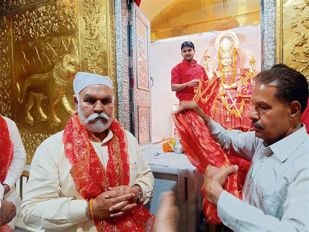
Photo for representation only.
Washington, June 20
Scientists have designed an algorithm that can predict who will emerge as a winner of a debate, by identifying features of a strong argument.
Researchers from Northeastern University in the US believe that the right mix of linguistic analysis, artificial intelligence, and data visualisation can produce more meaningful debates.
Understanding what makes a persuasive argument is at the heart of an interdisciplinary project she is leading. The ultimate goal is to help social media platforms evolve from echo chambers full of hate speech to places where constructive conversations flourish.
"Debates should be mechanisms for discovering something new about the world," said Nick Beauchamp, an assistant professor at Northeastern University.
"The hope is that you would come away from a debate not with just a set of new facts you learned, but also with a better way of thinking about the problem," he said.
With this goal in mind, researchers designed an algorithm that identifies features of a strong argument. Using a dataset of 118 Oxford-style debates - in which the winner is whomever can sway more of the audience to their side - the algorithm was able to predict debate winners 74 per cent of the time.
The model found that winning arguments were characterised by certain linguistic features, said Lu Wang, an assistant professor at Northeastern University.
For example, the pronouns "we" and "they" were used more often in winning arguments than the pronouns "you" and "I."
Researchers also discovered that debate winners shifted topics strategically to keep the conversation focused on their strongest arguments, said Beauchamp.
They found that strategic topic-shifting was predictive of winning debates. This is one early insight from the model. Wang plans to apply the algorithm to debates on social media to better understand how they unfold.
The assumption that people want to participate in constructive debates, and not just hurl insults at each other, is optimistic, Beauchamp acknowledged. However, having a model of what an ideal debate looks like is essential to shaping such a debate, he said.
Eventually, Wang wants to collaborate with Twitter and Facebook to develop an automatic evaluation tool that measures the quality of debates.
The tool would include a visual component that shows that the most constructive conversations result when both sides present strong arguments. — PTI.


























